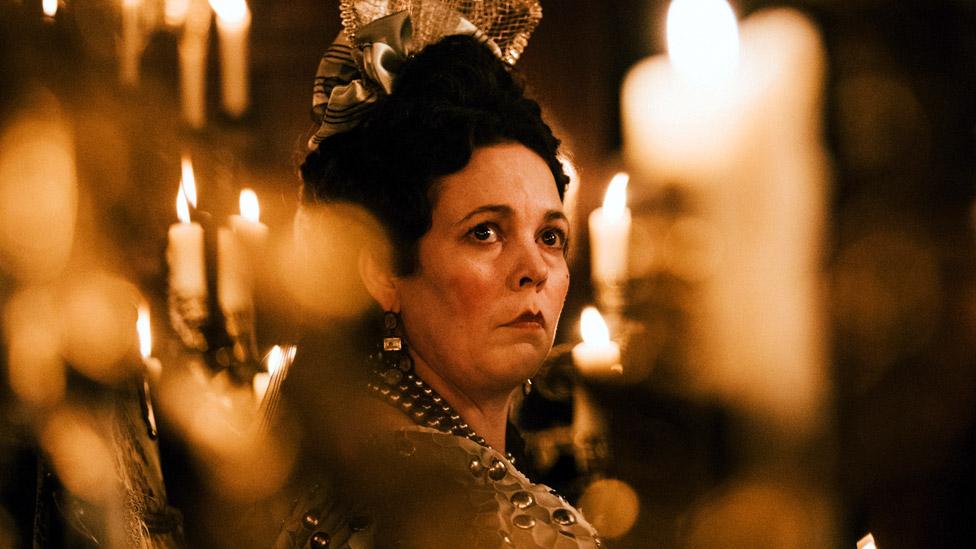’Ignorant and offensive!' The subtext of subtitles
- Published
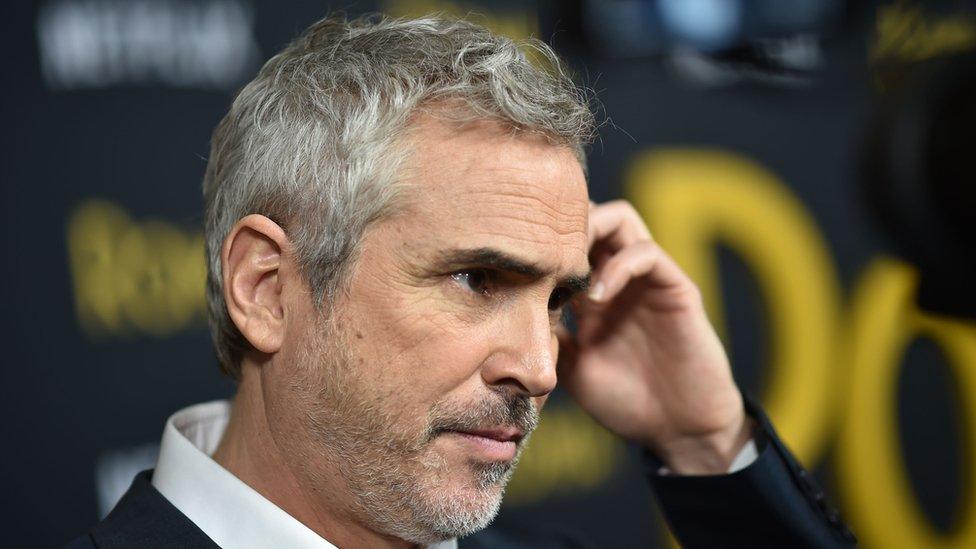
Mexican director Alfonso Cuarón lashed out after Spanish subtitles were put on his latest film
A decision to subtitle Alfonso Cuarón's Spanish-language film, Roma, for Spanish audiences has left the Oscar-winning director fuming.
It was, he told Spain's El Pais newspaper, "parochial, ignorant and offensive".
But why subtitle Spanish for a Spanish audience? Well, Roma is set in Mexico, and therefore the actors - for the most part - speak Mexican Spanish. It appeared that Netflix and the film's distributors in Spain feared local audiences would not understand the differences.
For Cuarón, who is Mexican, the decision was "ridiculous".
"One of the things I most enjoy is the colour and texture of other accents," he argued.
As a result of the outcry, Netflix changed the subtitle option on its streaming menu from "European Spanish" (which turned dialogue into Castilian) to "Spanish" (which transcribes what is actually spoken onscreen), and dropped subtitles from cinema screenings.
But this is not the first time such an issue has come up. Indeed, the problem of when to subtitle or not subtitle English-speakers crops up again and again across the world.
Back in 2006, Scots were "puzzled" to find a group of North Sea fisherman had been subtitled in the BBC1 documentary series Trawlermen - especially as, according to Stewart Stevenson, Member of the Scottish Parliament for Banff and Buchan, they had already slowed down their speech to ensure they could be understood.
The BBC said the show's stars were happy to be subtitled - even acknowledging themselves that they might be hard to understand.
But even so, Mr Stevenson argued, it raised the question of where the line should be drawn when it came to subtitling.
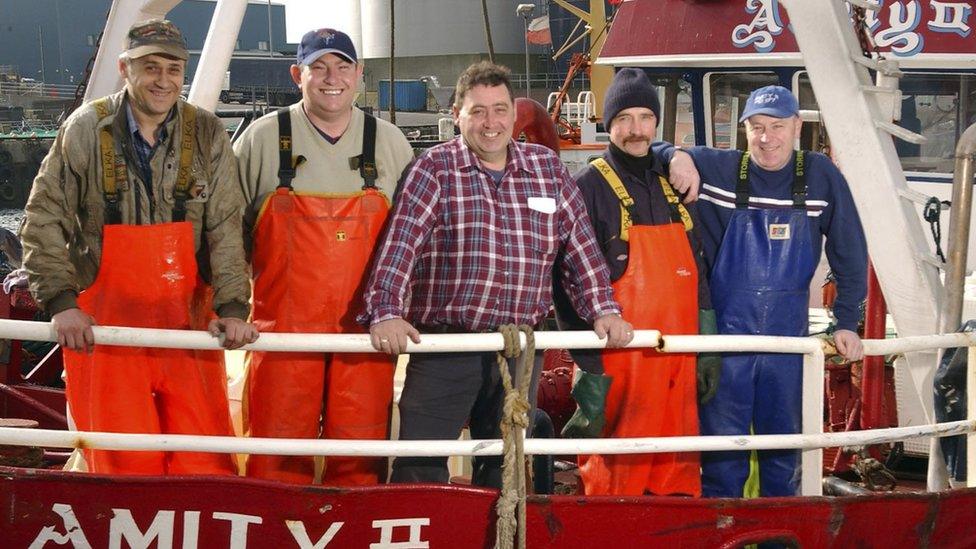
The Scottish stars of Trawlermen were also given subtitles
"I remember trying to watch the first episode of EastEnders and switching it off because I couldn't understand what was being said."
But can incautious use of subtitles tip from being merely offensive into being racist? The Guardian's Mark Lawson has certainly suggested there is a risk - even if it is unintentional.
"Speakers with Scottish and American regional accents are regularly subtitled in British programmes and captions are also sometimes employed when the soundtrack is indistinct because, for instance, of surreptitious recording," he wrote, external in a 2012 article.
"But due to the history of skin-colour discrimination, the technique is inevitably most sensitive when it appears to be penalising some accented black speakers for failing to deliver their contributions in what used to be called the Queen's or BBC English."
The article came after questions were raised over a 2012 BBC documentary, The Secret History of Our Streets. The series, people noted at the time, only subtitled some of its interviewees, leading some to suggest an element of racism in the decision.
"Why on Earth did you find it necessary to give subtitles for any contributor from the Caribbean or Africa?" wondered one commenter on the producer's blog after it aired. "They were all easy to understand."
MTV Australia has also found itself in trouble over subtitles - only these ones didn't exist. The channel's Twitter account joked that the US Latina actresses America Ferrera and Eva Longoria needed subtitles because they had "no idea" what they were saying during a 2016 awards show.
"Disgusting and in extremely poor taste," one Twitter user responded. The network immediately took the post down, and apologised.
Allow X content?
This article contains content provided by X. We ask for your permission before anything is loaded, as they may be using cookies and other technologies. You may want to read X’s cookie policy, external and privacy policy, external before accepting. To view this content choose ‘accept and continue’.

Ingrid Piller, a professor of applied linguistics at Sydney's MacQuarie University, noted that at times subtitling accents appeared to be more "a matter of ideology and identity" than "intelligibility" in a 2011 blog post.
"The pattern is obvious: native speakers of English are presumed to be universally intelligible on Australian TV, even if theirs is a distant and obscure dialect," she wrote, external after watching a number of Australian television programmes.
"The speech of non-native speakers, by contrast, is presented as problematic and unintelligible even if they speak educated Standard English."
But then, not subtitling can also cause problems, as an Irish television channel discovered earlier this year.
RTE decided against subtitling a farmer from County Kerry whose sheep had been stolen.
Allow X content?
This article contains content provided by X. We ask for your permission before anything is loaded, as they may be using cookies and other technologies. You may want to read X’s cookie policy, external and privacy policy, external before accepting. To view this content choose ‘accept and continue’.

The result: He became an instant social media star as Irish Twitter users tried to work out what he was saying.
So why subtitle? Well, the key reason was summed up by the BBC back in 2006.
The subtitles were added, the spokesman explained, "so the stories being told by the trawlermen weren't lost as a result".
- Published13 December 2018
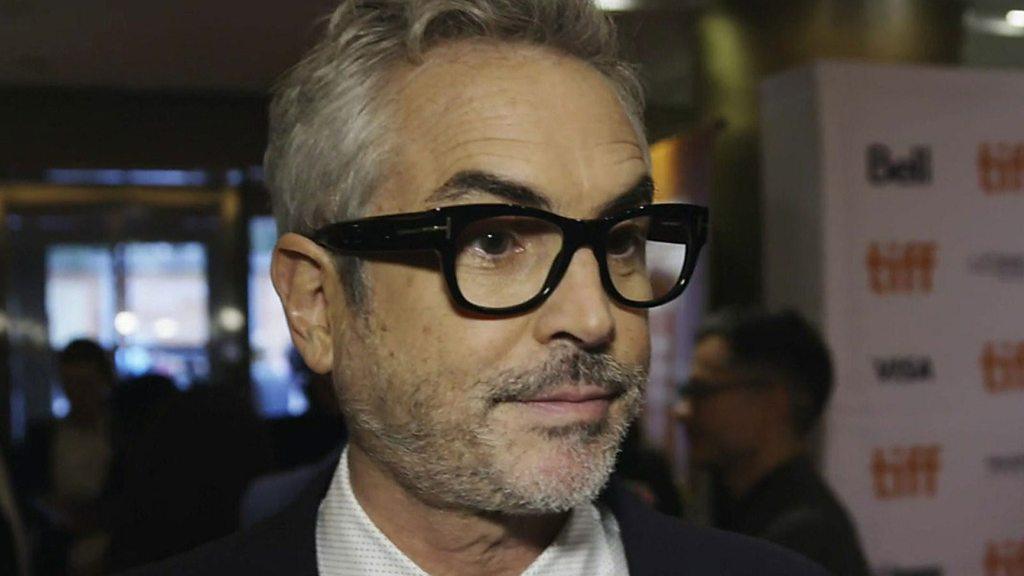
- Published3 October 2017
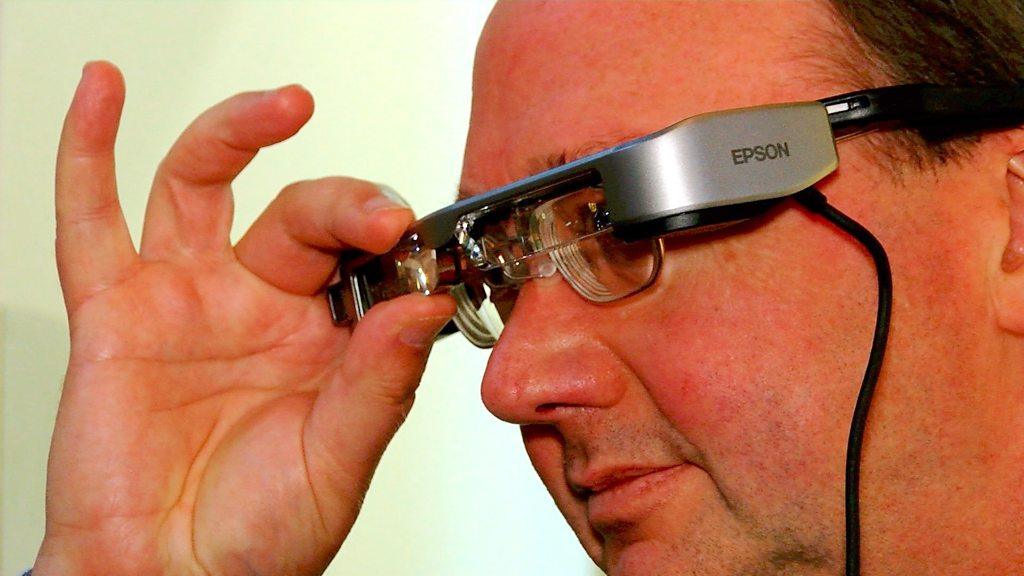
- Published29 June 2018
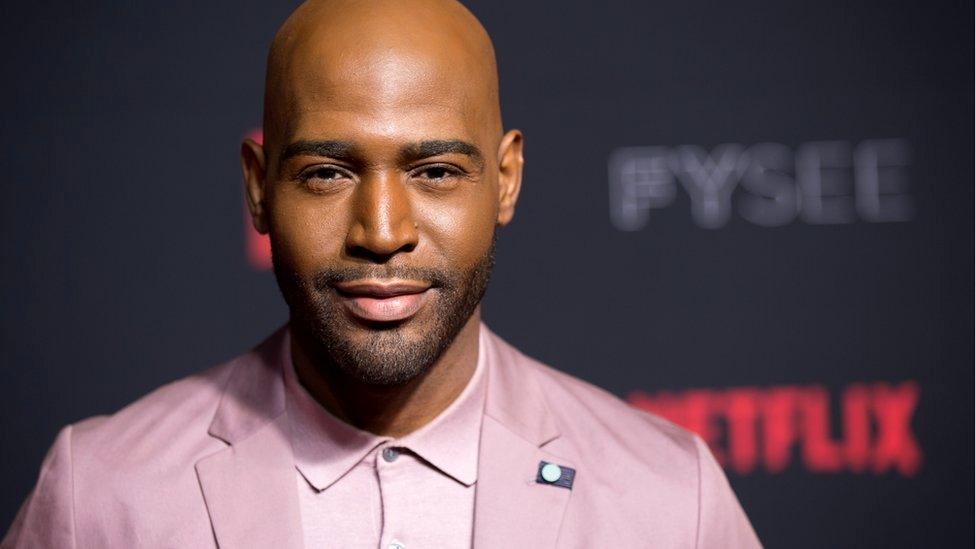
- Published5 June 2017

- Published29 January 2015
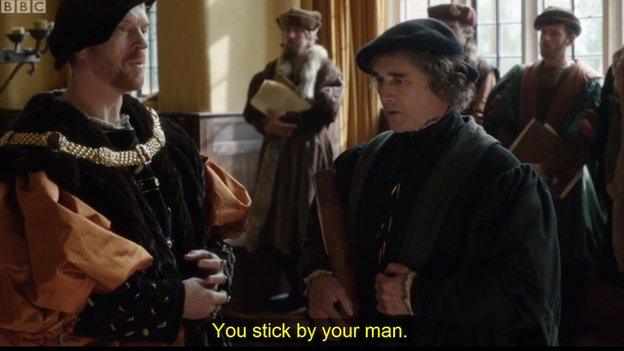
- Published9 January 2019
